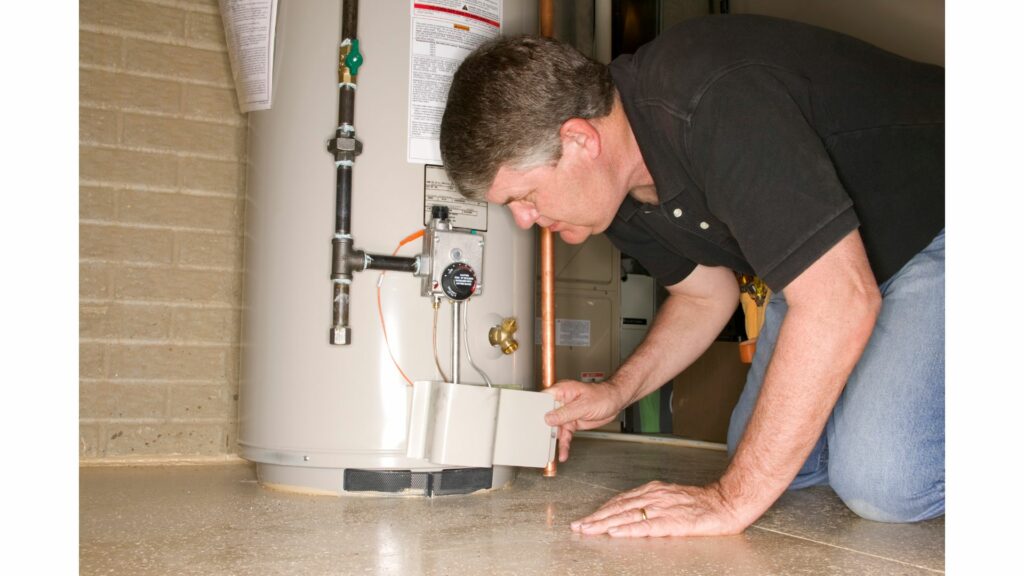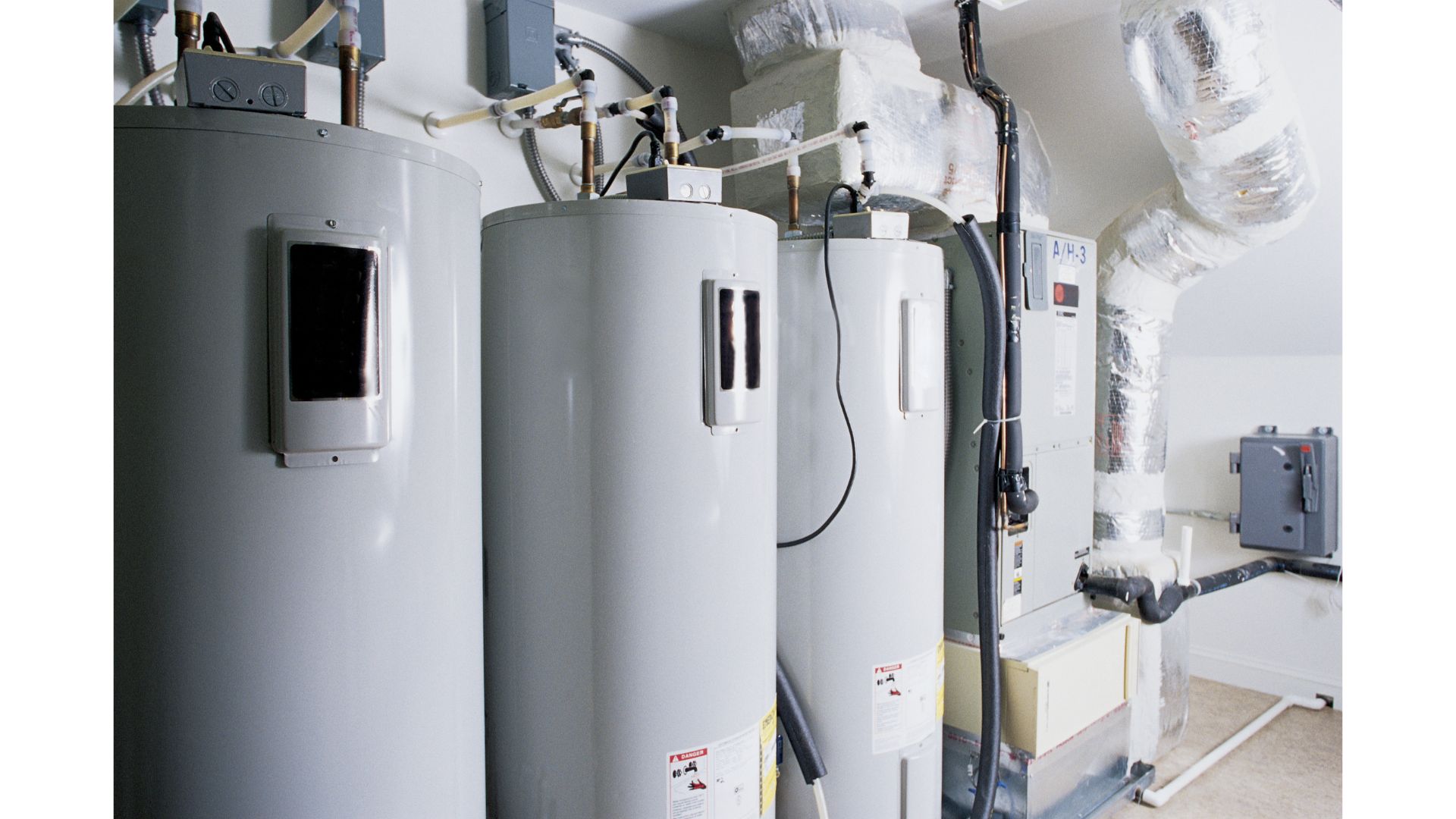People leave their water heaters on all the time, even when the water is off, but is that safe?
Can You Leave A Water Heater On Without Water? You can leave a tankless water heater on without water. But if you are using tank-type heater, I don’t want you to run it for more than 24 hours without water because it will dry-fire the heating element.
To understand the consequences of leaving the water heater on, you must understand the relationship between this appliance and your water supply:
1). The service provider sends water into your home via a water line. That water is usually cold regardless of the weather. You want the heater to raise the temperature of that cold water to fit your needs.
2). The heater cannot do its work until the water flows into the appliance. But the heater’s interaction with the water depends on the type of heater. Heaters with tanks have a gas-powered flame or an electric element that heats the water as it enters the bottom of the tank.
The pressure is a problem. It can rise to dangerous levels. Fortunately, these appliances have a valve that relieves the pressure.
3). When you open a faucet in the house, the hot water drains out of the tank. New (cold) water flows into the tank as a replacement, and the flame or element raises the water’s temperature again.
The goal of a tank-type heater is to ensure that the water is always warm. But it can’t always accomplish this objective if your home’s demand for hot water is very high.
4). Tankless water heaters are different. They don’t have a tank of water for the element to preheat. Instead, they wait for you to open a tap. The cold water flows over the heating mechanism, warming shortly before it exits the faucet.
You don’t have to wait for the water to heat up. Hot water is always available. As you can see, tank-type and tankless heaters create two different situations:
1). You must submerge the element in water for a tank-type heater to work. Does that mean turning the water supply off harms the tank-type heater? Not necessarily. If you still have water in the tank, you can leave the heater on without causing damage.
This practice only becomes dangerous when you drain the tank. You will ruin the heating element because water no longer flows into the tank.
2). Tankless heaters are safer. I don’t see anything wrong with leaving a tankless heater on even after shutting the water supply off. You don’t have to submerge the heating mechanism in water for a tankless heater to work.
A tankless heater’s biggest concern is the water pressure. Check the manufacturer’s website. If it encourages you to shut the tankless heater off in the absence of a reliable water supply, you should obey.
How Long Can You Live A Water Heater On Without Water?
You don’t lose anything by keeping the water heater on at all times, especially when your home has a significant demand for hot water. You don’t save as much money as you think by turning the appliance off.
In fact, electric heaters can become an inconvenience if you have a model that takes hours to attain the correct temperature after you switch it off. If the tank-type heater has no water, you can keep it on for a day while you wait for the water supply to resume. But if the water remains off, shut the heater down after 24 hours.
What Happens If You Leave A Water Heater On With Water Off?

You will dry-fire the heating element. Water heaters use two heating elements (at the top and bottom) to elevate the temperature. If you run the heater without submerging the elements, their temperatures will spike to dangerous levels.
They won’t significantly exceed the temperature of the water while submerged. DRF Water Heating Solutions expects the tubing temperature to reach 2000 degrees F in the absence of water. First, the zinc plating will melt off.
Then the tubing will become soft enough to bend. If you’re lucky, the elements will last a few more months. But in many cases, they fail within the first 45 seconds.
A dead element is the least of your worries. Other components in your heater will crack. In the worst-case scenario, the tank will explode.
Again, your biggest concern is the tank type. Tankless heaters will survive.
So, Should I Turn Off My Heater When There Is No Water?
You don’t have to turn a tank-type heater off if the tank has water. Shutting the water supply off won’t empty the tank. Unless you have a leak, the water will remain in the tank until you open the tap.
Once the tank is empty, you should switch the heater off to protect the heating elements. If you have a tankless type, it can survive even when you disconnect the water supply.
Should I Turn The Heater Off Before Going On Vacation?
You can turn the appliance off, but it isn’t necessary. Heaters have low heating settings that consumers use when they have to leave home for an extended period. You should only switch the heater off when you intend to disconnect the water supply.
People shut the water off before going on vacation to prevent flooding. But if you keep the water on, you can also leave the water heater on. You should only deactivate the heater when the tank is empty.
Can You Save Money By Turning The Heater Off?
Modern water heaters have a VAC (Vacation Mode) setting that reduces power consumption. The heater is typically programmed to maintain 130 degrees F. In VAC mode, it brings that figure down to 50 degrees F.
The appliance uses less power to maintain 50 degrees F, which is good for your utility bills. Shutting the heater off because you have to leave for an extended duration will save you pennies.
More importantly, you will lose those savings when you finally turn the appliance on because of the reheating process. Turning the heater off and on uses more power than leaving the device on.
Is There A Benefit To Leaving The Heater On?
Keeping the heater on ensures you have hot water whenever you need it, especially when you expect to resolve a disrupted water supply within a few hours. More importantly, the hot water can prevent the pipes from freezing during the winter.
How Can I Protect The Water Heater Without Shutting It Off?

The best option is to use VAC mode after shutting the water supply off, especially when traveling for a few days. Use the lowest temperature setting if your heater doesn’t offer VAC mode.
You can raise the temperature to the correct setting once you return and reconnect the water supply. A high temperature encourages scale buildup. The heat compels calcium and magnesium deposits to form on the elements.
Don’t exceed 120 degrees F on most days. Lower the temperature to 50 degrees F in your absence. Keep in mind that well-maintained heaters are more likely to tolerate dry-firing. Don’t ignore scale buildup. Use vinegar and water softeners during your maintenance routine.
Related post:

